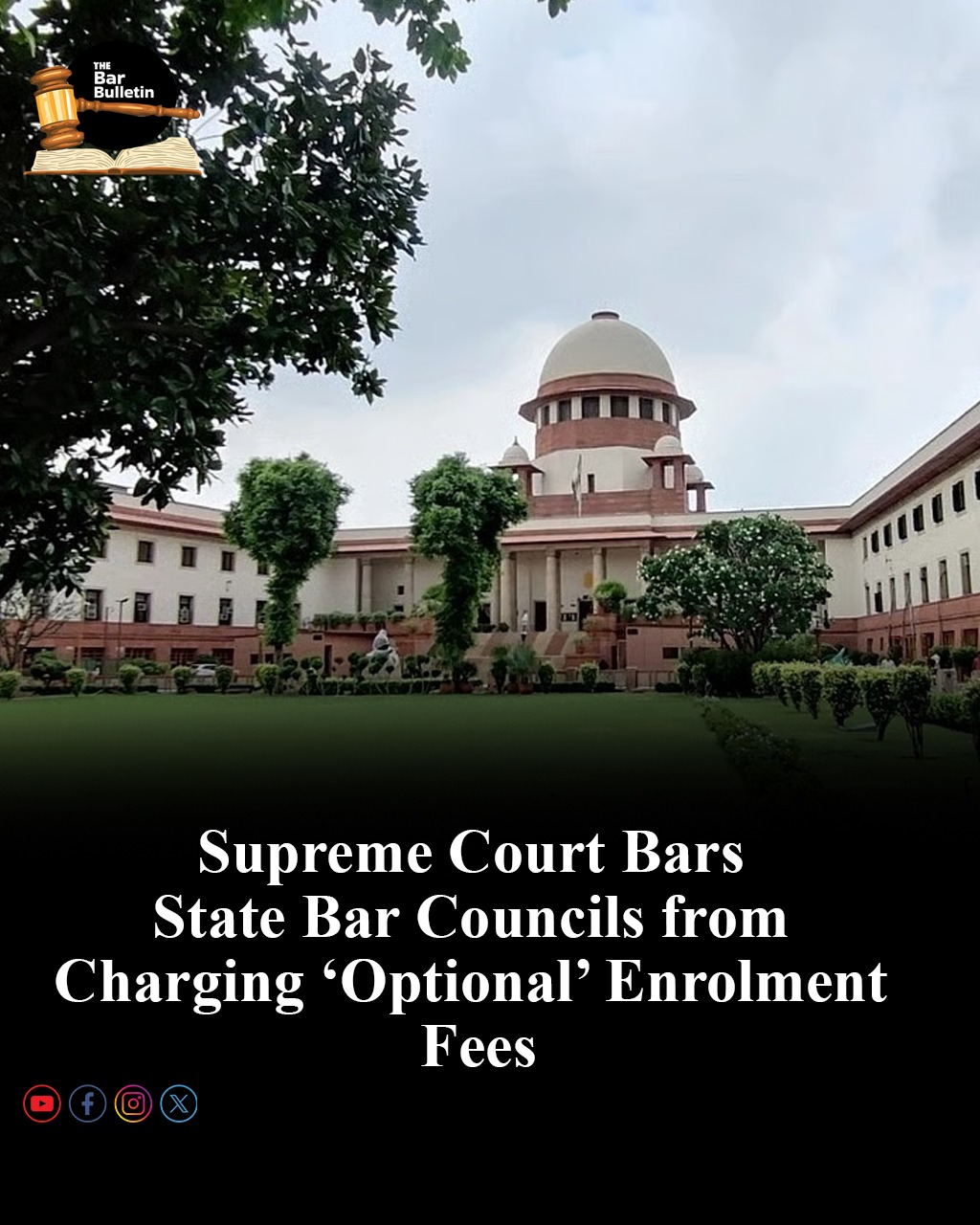The Supreme Court has reaffirmed that State Bar Councils and the Bar Council of India (BCI) are prohibited from charging any enrolment fees from law graduates beyond the statutory limit prescribed under the Advocates Act, 1961. The ruling came in response to a contempt petition filed by Kiran Babu, who alleged that the Karnataka State Bar Council was continuing to collect exorbitant fees despite a categorical direction from the Court in July 2024.
A bench of Justices J.B. Pardiwala and R. Mahadevan observed that the Karnataka State Bar Council was charging law graduates ₹6,800 towards ID cards, certificates, welfare funds, and training, plus an additional ₹25,000 over and above the legal fee limit. The State Bar Council claimed these amounts were “optional” contributions and not mandatory for enrolment.
The Court rejected this argument outright, stating there is no concept of “optional” fees in the enrolment process. It held that fees must be strictly confined to the statutory amounts ₹750 for general category candidates and ₹125 for SC/ST candidates as mandated by Section 24 of the Advocates Act, 1961 and clarified in Gaurav Kumar v. Union of India, 2024 INSC 558 in which the Court had ruled that charging excessive enrolment fees violates a law graduate’s fundamental rights under Article 14 (right to equality) and Article 19(1)(g) (right to practice a profession) of the Constitution.
The bench directed the Karnataka State Bar Council to immediately cease collection of such amounts and reiterated that neither State Bar Councils nor the BCI can impose any additional charges whether labeled as “optional” or otherwise beyond the statutory fee.

